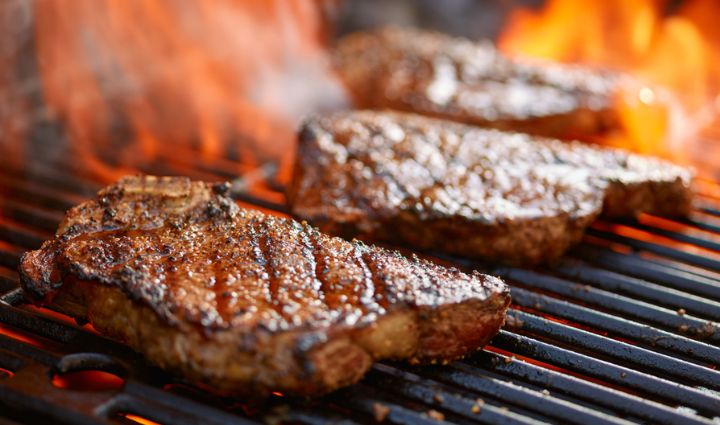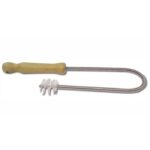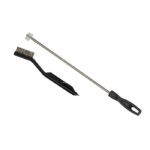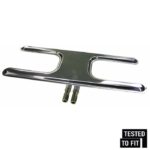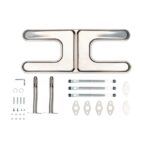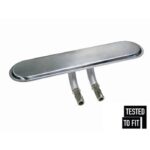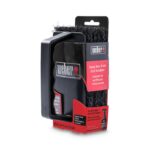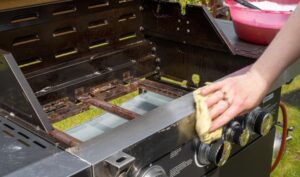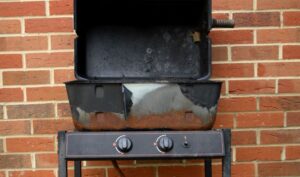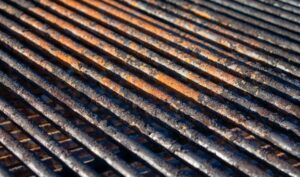The Complete Guide to Troubleshooting Gas Grill Issues is your source for step-by-step instructions on how to diagnose and fix the most common gas grill issues. Whether your grill isn’t heating properly, won’t stay lit, or simply has rusty parts, we’ve got the answers you need to get your gas barbecue firing on all cylinders.
Nothing can turn a relaxing cookout into a high-stress crisis faster than out of control flames. A gas grill with flames that get too high is dangerous for the cook and can distract from the cooking process—not to mention adding a little too much char to your food.
So, what causes a gas grill flame to get too high? And, more importantly, how can it be prevented? In this section of the Complete Guide to Troubleshooting Gas Grill Issues, we’ll take a look at four reasons why your grill’s flame might be too high, including:
- The ignition process
- Misaligned or blocked venturi tubes
- Damaged burners
- Flare-ups
Let’s get cooking.
4 Reasons Your Gas Grill’s Flame is Too High
1. The ignition process
If the flame is only briefly too high when you light the grill, it may just be part of your grill’s normal ignition process. Some grills, like the Weber Summit Series, use a special technology that produces a large, bright flame that shoots out of each burner when it’s initially lit. If this is how your particular grill operates, the flame should stop after the grill is lit. If it doesn’t, keep reading.
2. Misaligned or blocked venturi tubes
Misaligned or blocked venturi tubes can cause shooting flames, as well as flames that appear in the wrong spots such as underneath the grill or around the control panel. To check if this is the issue and make the necessary corrections, inspect the venturi tubes when the grill is cold to ensure they are not misaligned or blocked.
If the tubes are misaligned, it’s easy to realign them. Simply remove them from the clips holding them in place and reinstall.
If the tubes are blocked, clean them out with a venturi brush before placing them back in their clips. If the blockage was caused by an insect or spider, you may wish to consider preventative exclusion screens that can be slid over the venturi tube shutters.
Maintain your grill burners:
3. Damaged burners
Corroded or damaged burners can cause your gas grill flame to be too high, as well as problems with temperature consistency. Even if you’ve carefully maintained your grill, regular use will eventually result in the burners deteriorating. Inspect your burners for holes, rust, or other damage—if you find any, it’s time to replace them. Here’s how:
- Remove the grill grates and heat plates and set them aside.
- Remove the burners. Depending on your grill configuration, this could mean removing a cotter pin or unscrewing a few screws to get them out.
- Clean the burner box.
- Line up the new burner air intake, slip the new burner onto the gas nozzle, and position the burner in the burner box.
- Resecure the burner by screwing it onto the burner box or reattaching the cotter pin.
- Replace the grill grates and heat plates.
Be sure to take care of your new burners with proper routine maintenance.
Shop universal replacement burners:
4. Regular flare-ups
The most common reason for flare-ups is excess fat, sauces or oily marinades dripping onto your grill burners. Prevent flare-ups and keep your gas grill flame from getting too high by cleaning your grill regularly and properly preparing your food:
- Check your grease pan: Before grilling, make sure your grease pan is wiped clean of accumulated fats and oils.
- Clean your grates and heat plates: Grease and food debris can build up on grill grates and heat plates, so if you haven’t been staying on top of routine maintenance, give your grates and heat plates a good scrub-down. This will help ensure there aren’t any food bits or grease igniting and causing flare-ups.
- Preheat your grill: Proper preheating can help ensure any residue is burned off before cooking.
- Cut the fat: Trim any unnecessary fat from meat to avoid excessive dripping.
- Don’t over-oil: Avoid over-dressing your food—if oils or marinades are dripping off, there’s too much. Scrape as much marinade off before placing meat on the grill, or even better, pat it dry with paper towels. The marinade has already done its work and doesn’t need to be left on the meat while cooking.
Conclusion
If your gas grill flame is too high, it is likely caused by one of the following issues:
- The ignition process
- Misaligned or blocked venturi tubes
- Damaged burners
- Flare-ups
Thankfully, these issues are easy to fix and typically can be resolved in just a few minutes.
Still struggling with your grill? Learn more about different grill problems, what causes them, and how to solve them in our Complete Guide to Troubleshooting Gas Grill Issues.

